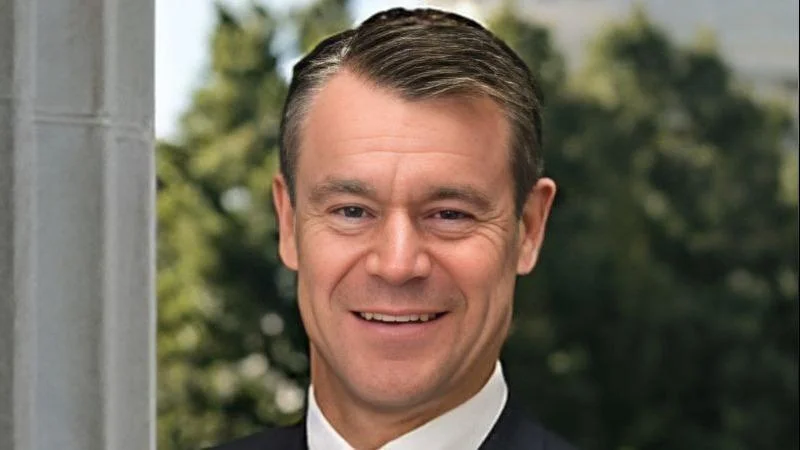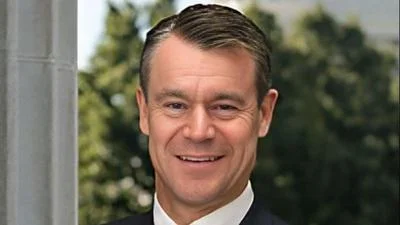Senator Todd Young, US Senator for Indiana | Official U.S. Senate headshot
Senator Todd Young, US Senator for Indiana | Official U.S. Senate headshot
U.S. Senator Todd Young (R-Ind.) has issued a statement following the Senate's vote on the Caribbean War Powers Resolution. In his remarks, Young noted that he had received several briefings from administration officials and consulted with external experts regarding the legality of recent military strikes in the Caribbean and Eastern Pacific.
"Since the last Senate vote on this issue, I’ve received multiple briefings from the Administration and consulted with outside experts about the legality of recent strikes in the Caribbean and Eastern Pacific. I am grateful to senior Administration officials for those briefings. Based on the information I have received, I have a greater appreciation for the legal rationale behind our service members executing these strikes, and I do not believe this resolution is necessary or appropriate at this time," Young stated.
Despite voting against the resolution, Young clarified that his decision should not be interpreted as support for current administration policy in these regions. He expressed concern over aspects of ongoing operations and questioned their alignment with public sentiment.
"However, my vote today is not an endorsement of the Administration’s current course in the Caribbean and Eastern Pacific. As a matter of policy, I am troubled by many aspects and assumptions of this operation and believe it is at odds with the majority of Americans who want the U.S. military less entangled in international conflicts," he said.
Young also raised questions about strategic objectives related to militarizing anti-drug efforts, warning that such actions could escalate into broader conflict or even domestic operations. He emphasized constitutional principles requiring congressional involvement in decisions related to war.
"The strategic objective of militarizing a ‘War on Drugs’ is unclear at best and, while not currently desired or contemplated, these operations could conceivably lead to direct military conflict with Venezuela or even operations inside the United States. While no one has declared war on Venezuela, the creeping expansion of executive war-making—under presidents of both parties—without congressional input or oversight is dangerous. Additionally, consultation and a decision by Congress enables an open, democratic assessment of how a president envisions connecting the means of military action to a clear, strategic outcome that is in the national interest, not to grandstand or create 535 commanders-in-chief, but rather to monitor and review the activities of the executive so we don’t repeat the foreign policy mistakes of this century. The Constitution is clear: Congress, not the President, holds the power to declare war, not as a constitutional nicety, but rather as a reflection of the national will."
He concluded by calling for more transparency from administration officials regarding military strategy: "The American people deserve a more transparent strategy – not ad hoc military maneuvers conducted without a clearly-defined objective. The Administration must keep the people’s representatives better informed if and before this situation escalates in any way."




 Alerts Sign-up
Alerts Sign-up